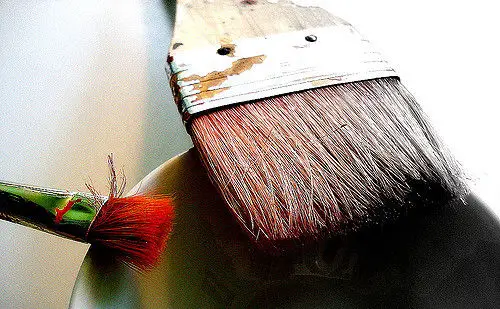Jonathan Dodd’s latest column. Guest opinion articles do not necessarily reflect the views of the publication. Ed
There’s a strange pattern to life. I’m not saying that I understand the pattern, but I do think that I’ve identified some of the usual suspects that make up this equation.
What you need to do, I think, is to consider the state of your health, your happiness, your feelings of security or insecurity, the weather, the economic outlook, and the presence or absence of violence and disorder, and it’s probably possible to work out a system using these elements for understanding why you might not want to get up or go out on any given day.
I’m writing this because it’s a time of year when, traditionally, I feel somewhat low. I believe it’s mostly because of the weather, which I can usually manage, as long as most of the other factors are doing all right. I’m in the process of working this out as I’m writing it, so if it seems a bit disjointed, please give me the benefit of the doubt. Most of these columns are spirited up from an empty space in my mind and on the screen anyway, so I hope to have something that will make some sort of sense by the time I’ve finished.
They don’t pass the Wheelbarrow Test
OK. The idea is this. Much of the time we don’t actually know how we feel about stuff. Or if we do, we just feel some sort of anger, or sadness, or vague unhappiness, but we don’t usually know what it’s based on. There are, of course, times when we know very well why we’re unhappy, or in pain, and I’ll be adding these in as I go, but mostly I’m thinking about our general run-of-the mill feelings.

The first thing to remember is that our feelings are just feelings. They don’t exist, because they don’t pass the Wheelbarrow Test. This is very simple. If it’s a thing, it should fit into a wheelbarrow. Of course, some things are very large, but they would fit into a very large wheelbarrow, so the test stands. No need to argue, which is just another word for nit-picking. I should know that, because I’m a world-champion nit-picker. Let’s just agree that some things are actual things, and other stuff isn’t.
The rain doesn’t care, it’s just doing its job
For instance, sunshine isn’t a thing, but rain is. There are consequences to sunshine that can become things, though. Sunblock cream is a thing created because sunshine causes events to happen, like sunburn. Rain is actually water, so that’s a thing, but rain causes things to be produced, like umbrellas. It also makes us wet if we don’t or can’t shelter. It’s possible to feel good about being out in the rain, or you can feel bad about it, or you may not care. Those are feelings, they’re not things.

Being wet and feeling good does cause things to be produced, like happy chemicals in our bloodstream. We make them because we feel emotionally happy, and when they’re in our blood we feel physically happy too. Being happy and feeling good does cause things to be produced, like happy chemicals in our bloodstream. And these two types of happiness reinforce each other.
In the same way, being wet and miserable causes the opposite effect. Not only do we feel miserable, and suffer from an absence of happy chemicals, but our bodies start to tell us we need to make more heat, and we might become more vulnerable to chills and other nasty things. The rain just happens. We may or may not be affected by it, and we might well experience emotional feelings and certain physical results. There’s the thing itself, the rain, then there’s our comfort or happiness in being involved, and then there are physical results, which reinforce themselves. The rain doesn’t care, it’s just doing its job.
For everyone else it’s just the luck of the draw
Some of the things that affect us are like the rain. They just happen. It’s only minor rain gods who have small rain clouds following them round everywhere, bathing them in a perpetual and infinitely varied range of watery precipitation. For everyone else it’s just the luck of the draw. But we decide to a great extent what we’re going to do about it and how we’re going to feel about it, and that influences the consequences.

In this way, a thing or an event can have an influence on how we’re feeling, or it might make no difference. But if we’re already feeling a certain way, these events might affect us more. For instance, damp weather seems to make arthritis or rheumatics hurt more. That’s probably not going to help your mood, unless something really good comes along to counterbalance it. Or you might be able to limit the effect, by staying inside your warm dry house until the air becomes dryer.
Learning how to spot the onset of damp weather
Once you know that damp air makes your knees hurt, you can avoid being bad-tempered as much as possible, and work out how to avoid unpleasantness, by learning how to spot the onset of damp weather. Obviously everything should be easier if you have lots of money, because you can use that to protect yourself, up to a point. I would feel foolish if I was rich and didn’t do that. If you have good health, this won’t be a factor in your life, but there will probably be other things that cause you difficulty.

There are all sorts of factors that can change our personal environment, that aren’t things in themselves, but could alter our circumstances. The possibility of losing a job, or a relationship, or worries about loved ones, or a whole variety of other factors, can cause us to lose sleep and become distracted. We all know about those things. The difficulty of carrying on as usual, even when you’re terrified or about to tear your hair out has been a problem for every individual human since the beginning of time, and nobody has cracked it yet.
Am I just being paranoid?
I know all this is completely familiar, but one of the things that helps me is to produce a map of it all. I do this in the following way. First of all, I ask myself, on a scale of 1 to 10, how I’m actually feeling about everything. If everything is all right, or OK, or even so-so, I don’t even think about doing it, because I’m obviously not particularly worried about any one thing. But it’s a good idea to explore if something’s not right or if you feel out-of-sorts. You don’t need to use my scale, you might like a different number, or go up or down, or choose an arrow or a gauge, or colours. Whatever works for you. This gives you a gauge as to how serious it is.

If you feel that you’re right to be concerned, it then helps to think about certain areas of your life, and assign them a similar score. How’s your health? Are you generally happy with your life, or is it not functioning as you would like? Is there something outside yourself that’s worrying you? How do you feel about the state of the world and what’s in it? Whenever I find a particularly high score in one of these areas, I can ask myself further questions. What is it about the world that’s really worrying me? Do I really need to worry about my job, or am I just being paranoid?
Innumerable imaginary magic wands
This isn’t designed to wave any imaginary magic wands, and I should know, because I’ve worn out innumerable imaginary magic wands in my time. It’s designed to help me be sure that I’m fed up because of something I can identify and explain, rather than finding myself worrying about something that’s not broken.

So when I wake up in the night, I can be fairly sure that it’s only because I’m worrying about a particular thing, rather than imagining lots of other stuff I might decide I should be worrying about as well.
Worry Creep
I heard a wonderful phrase once. ‘Mission Creep’. It’s the idea that you start out with one aim in mind, but you get suckered into doing all sorts of extras which you would never have agreed to before you started, and then you get stuck in Iraq for ten years, or Afghanistan.
In Computing, there’s ‘Development Creep’, where your small program gradually gets loaded with extra functionality until it creaks and then breaks. I’ve invented a new phrase that sums up this week’s column thus: ‘Worry Creep’.

Make sure that you know enough about what’s actually happening, so you only worry about the things you need to worry about. But if you feel the need to worry about everything, at least allow yourself to worry a lot about the big things, and only worry a little about the little things. And may all your worries be small.
If you have been, thank you for reading this. If you haven’t, there’s no need to worry about it.
Image: pixabay under CC BY 2.0
Image: whiteafrican under CC BY 2.0
Image: David Dixon under CC BY 2.0
Image: dagoaty under CC BY 2.0
Image: John Fowler under CC BY 2.0
Image: pixabay under CC BY 2.0
Image: Pixabay under CC BY 2.0
Image: alosojos under CC BY 2.0





